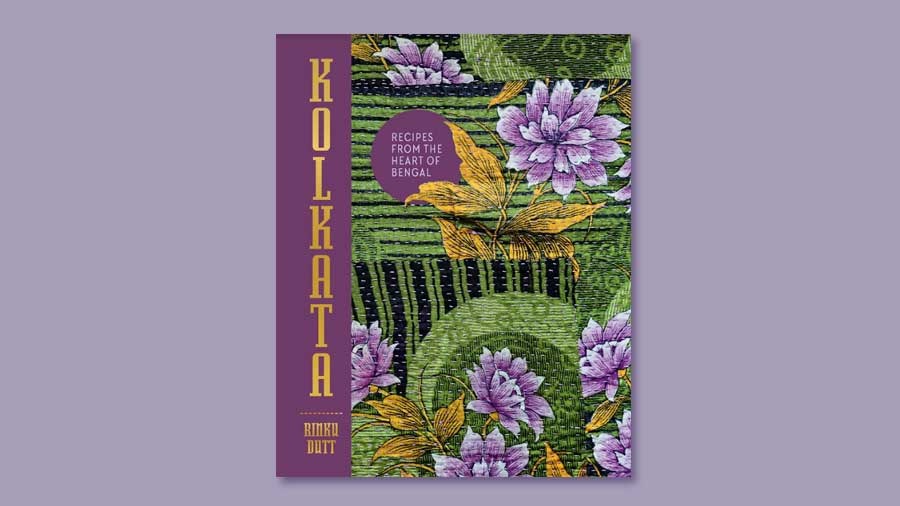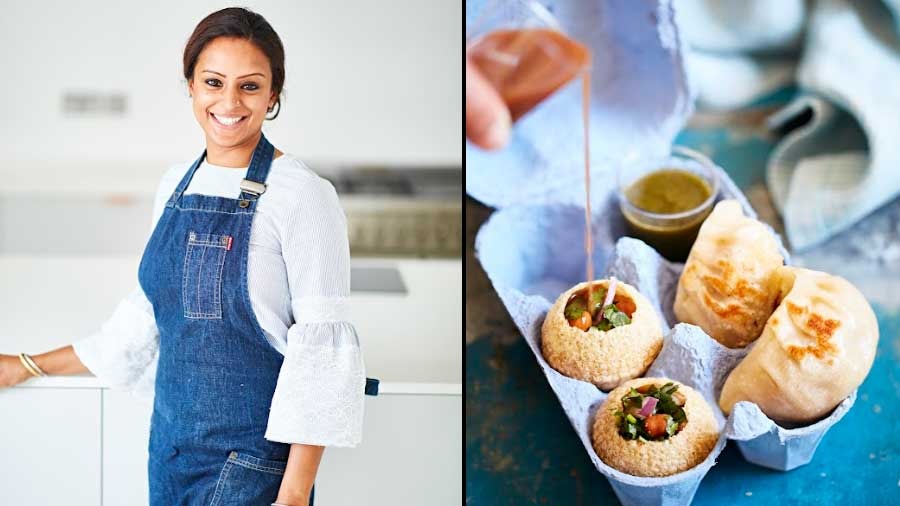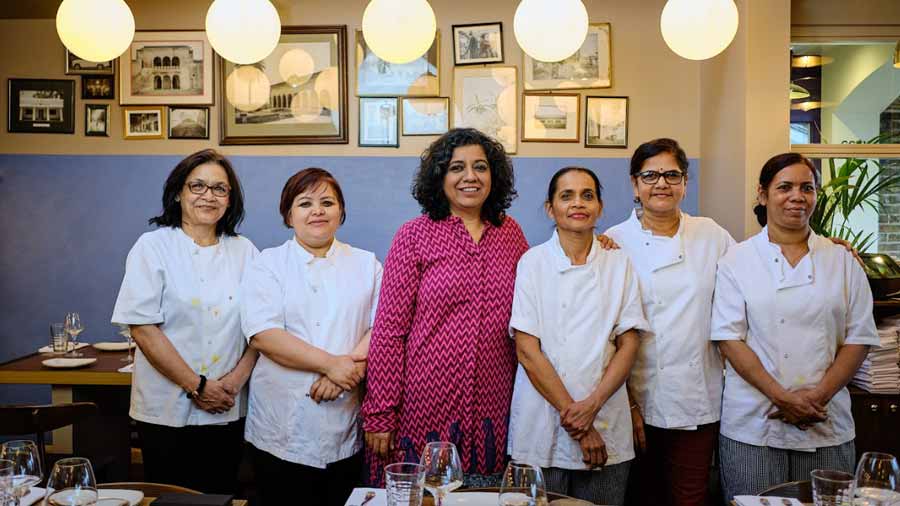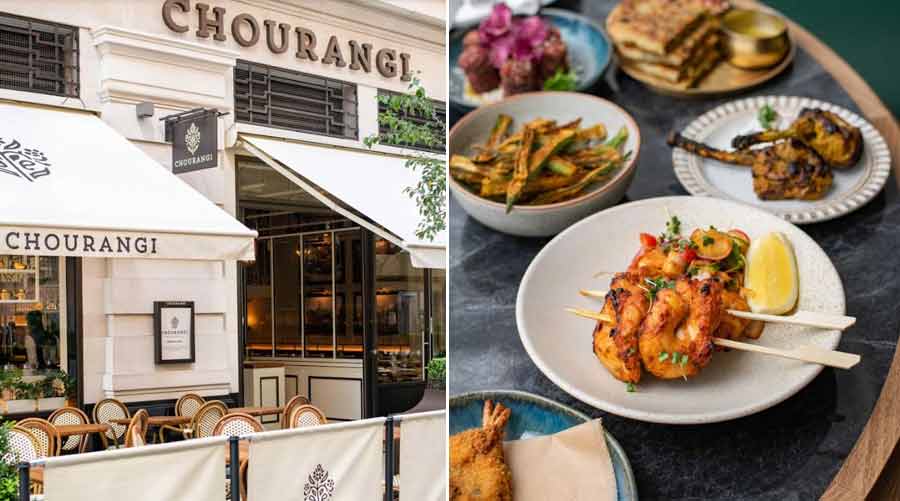It all began at a farmers’ market in Chatham, Kent, with three tables. Rinku Dutt, her father Ron and husband Neelan, wrapped marinated and skewered chicken in Indian flatbread, put it into a float box with a side of salad, sauces, some bhajas and narkal naru (coconut balls) and sold it for 10 pounds. It was a rolling success.
And so, a tweaked version of ‘Kolkata Kati Rolls’ made it to the Raastawala menu, sharing space with Spicy Water Bombs (phuchkas, of course!), Aloo Tikki Chaat, Kosha Mangsho and more.
“Raastawala was born in 2012. There was a gap for Kolkata street food that we felt we could bridge,” says Dutt, 41, a second-generation British-born Bengali.
In September, Dutt will also release Kolkata: Recipes from the Heart of Bengal, published by Smith Street Books. We caught up with the foodpreneur in London over a phone call to learn more about Raastawala and recipes…

What’s the story behind Raastawala?
Food has been a big part of my growing-up years. When I lived in Kolkata from 2009-2012 (Dutt was business partner of fashion designer Debarun Mukherjee), I fell in love with the street food. It became more than a connection, it became a way of life. Then when Neelan and I got married in Kolkata, a lot of our friends who came to the wedding spoke about how they missed this kind of street food in London, which is true, because in London, there’s a very niche market for Indian food. There was a gap for Kolkata street food that we felt we could bridge and so we opened Raastawala.
We started it as a part-time passion over the weekends in Canterbury in Kent. In 2017, we moved to London and that’s where the business picked up, and we started having a few outlets as well.
The yellow taxi, the pop colours, the name… Raastawala feels like a fun and quirky brand…
You know, somewhat like a dhaba-vibe, it’s garish yet it’s slightly savvy and chic as well. We had to have the yellow taxi and for the name, I have to credit Neelan. We wanted a catchy phrase, something that people could relate to. It’s the kind of image we wanted to create – the experience of eating in something like a shack or dhaba-style place.
What are some of your best-selling items?
The famous phuchkas of Kolkata, of course. We have renamed them Spicy Water Bombs and they do really, really, well. People will come to Raastawala just to have the Spicy Water Bombs. We have them in our supper clubs and our outlets. Obviously, phuchka or panipuri is something you can do all over India but Kolkata has a certain twist to it, and we’ve tried to replicate that.
Um, so how much does a plate of phuchka cost?
(Bursts into indignant laughter) You’re not allowed to ask that or do that whole currency conversion thing! Yeah sometimes, when we have Bengali tourists, they are like, ‘Orey baba, phuchka’r eto daam!’ But obviously, it’s not just the cost of the food, it’s inflation and everything else.
(It’s six pounds / £6 for six phuchkas :>)
Tell us about the other dishes like Kolkata Kati Roll…
Our Kolkata Kati Roll is one of our signature dishes. Traditionally, it’s done on a paratha but since paratha is more like a tummy-filler, and people come here for lunch and dinner, we have it with naan bread to make it more substantial. We cook the egg on it, have a tandoori chicken, spicy lamb, vegetarian or vegan filling.
Our momos – the Nepalese dumplings – do well, too. If it’s a supper club and a six-course meal, then we have something more elaborate. Like recently, we did Malai Chingri with Ghee Rice, and Kosha Mangsho with Paratha. Dishes like Kosha Mangsho, Biryani, Dhaniapatta Chutney… these are recipes that my dad would be famous for cooking over the weekend when we were young. The coriander and chilli chutney got three stars in the Great Taste Awards.
Where can people try Raastawala?
At the moment, we have two outlets, and we do supper clubs and pop-ups. One outlet is in north Greenwich, and the other is in Stratford. Our supper clubs are usually based in London. We can rent the venue or if people are hosting a party, then they have it in their house. Usually, supper clubs start from around 15-20 people and can go up to 40-50 people in one seating.
How do you know Asma Khan?
We did supper clubs together. She arranged a host of supper clubs and one of them was with me and that’s how I first got to know her. We stayed in touch and her head chef Asha is also a good friend of ours.
Finally, tell us a little about your cookbook that releases on September 29, 2022?
I was eight months pregnant when I was approached to write Kolkata: Recipes from the Heart of Bengal. My editor was like, ‘Do you think you’ll be able to do this?’ And I was like, ‘Sure!’
I started writing in November 2021 and all the 70 recipes in the book were ready by the end of February 2022. In the book, we have the Chicken Stew from Dacres Lane, Chilli Chicken from Tangra, Chelo Kebab from Mocambo and Golbari’s Kosha Mangsho. Of course, the recipes are either my father’s or they’ve been tweaked. Then there is mishti doi, malpua and Bengali sweets. In the book, I highlight the simplicity of some of the dishes in Bengali cuisine like the sada torkari, for example.
For me, the most important thing as a British-born Bengali is to make the cuisine accessible while using ingredients easily available in the supermarket.


